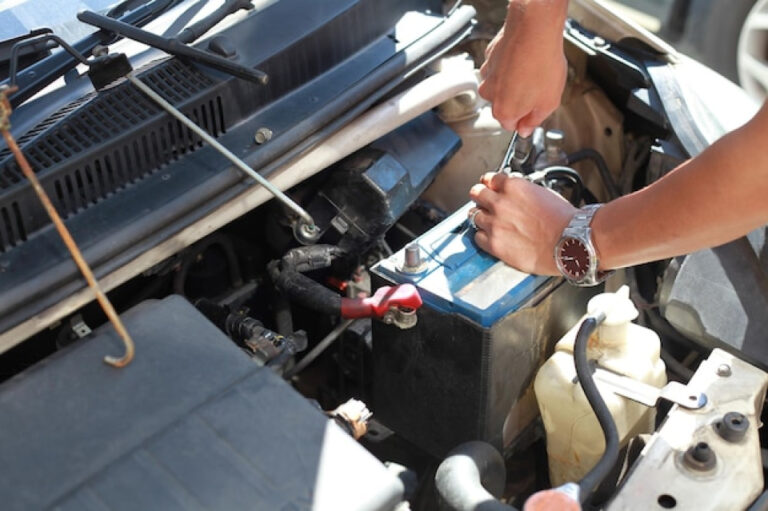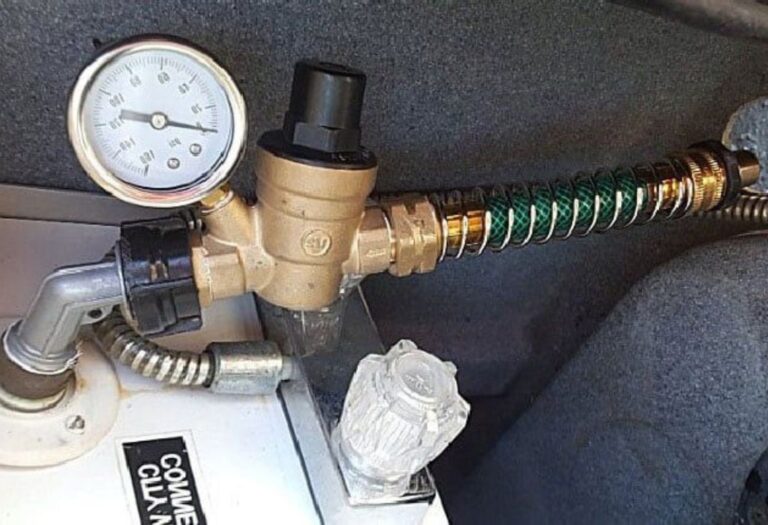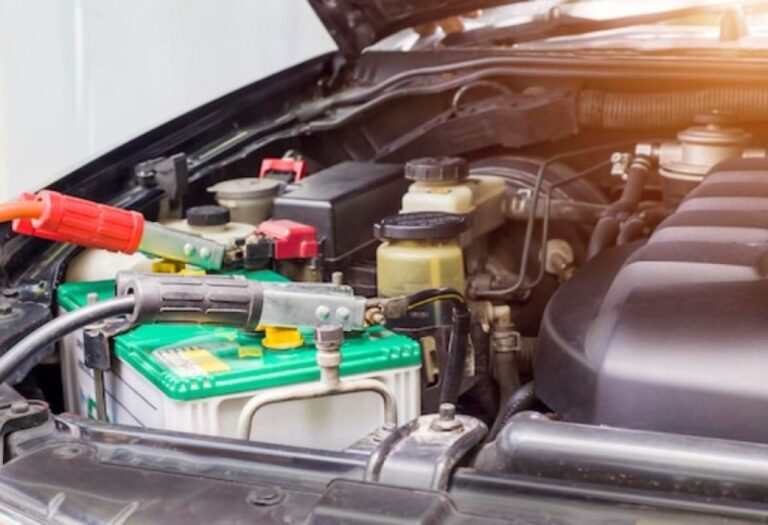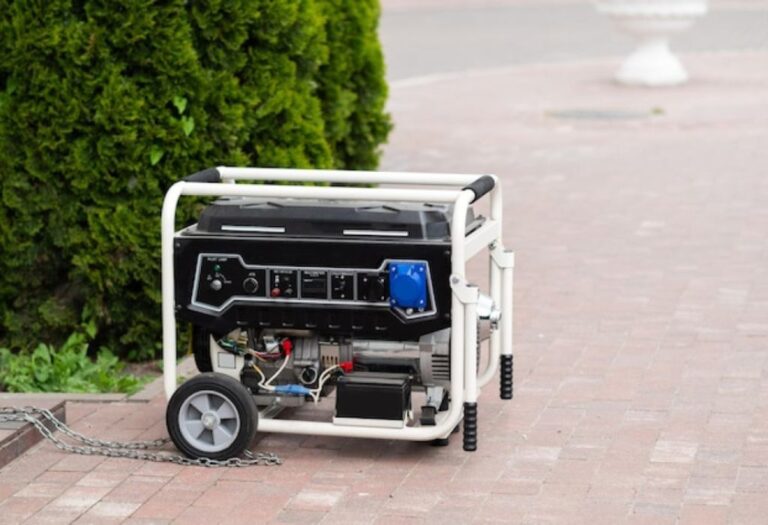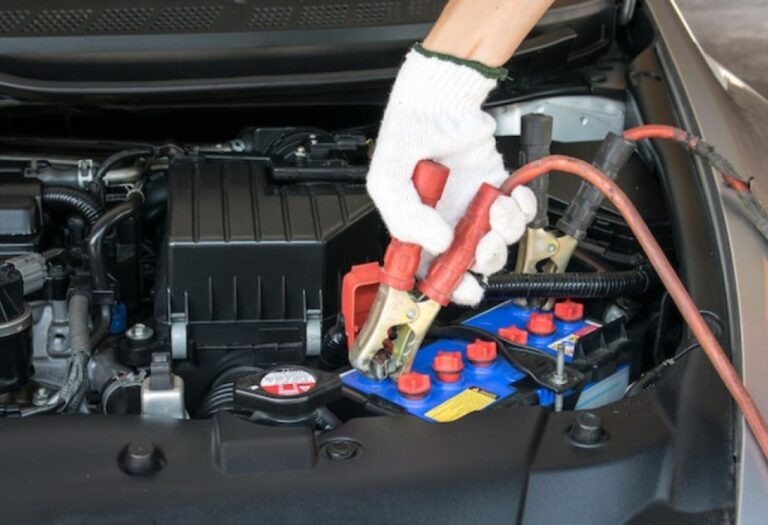Can I Run My RV Air Conditioner on Battery Power? Complete 2025 Guide
An RV owner parked at a campsite on a sweltering summer afternoon may wonder whether the house batteries alone are strong enough to keep the air conditioner running.
Air conditioners are among the most power-hungry appliances in any RV, and using them without a generator or shore power raises serious concerns about battery capacity.
The question is not just whether batteries can technically run an AC unit but also whether they can sustain it long enough to provide meaningful comfort.
Many RVers dream of off-grid camping where solar panels and batteries provide all the energy needed, but the reality is often more complex.
According to Energy.gov, a typical RV air conditioner uses between 1,500 and 2,000 watts while running and requires even more power at startup.
This energy demand drains standard RV batteries rapidly, especially if the air conditioner is used for extended periods without backup support.
Understanding the power draw of RV air conditioners, the role of batteries and inverters, and possible alternatives is essential for effective planning.
This guide explores whether RV ACs can realistically be powered by batteries, how long they last, and what options exist for off-grid cooling in 2025.
How Much Power Does an RV Air Conditioner Use?

RV air conditioners generally require 1,500 to 2,000 watts to operate under normal conditions. Startup surges can push demand above 3,000 watts.
This heavy draw makes the AC the single largest consumer of power in most RVs. Batteries designed for lights, fans, and small appliances often cannot meet this demand for long.
Air conditioner size matters as well. A 13,500 BTU unit typically consumes less than a 15,000 BTU model, but both require significant battery support.
Because AC use is continuous in hot weather, batteries deplete far faster than when powering intermittent devices like a water pump or microwave.
How many watts does an RV AC use?
Typically 1,500 to 2,000 watts.
What is the starting wattage?
Often above 3,000 watts.
Does AC size matter?
Yes, larger units consume more energy.
Is AC the largest RV power drain?
Yes, it uses more than any other appliance.
Can batteries handle this load?
Yes, but only for short periods.
Types of RV Batteries and Their Limits
RV batteries come in several types, including lead-acid, AGM, and lithium. Each has different capabilities when running heavy loads like air conditioners.
Lead-acid batteries are affordable but limited in depth of discharge, which reduces their usable capacity. Running an AC on lead-acid often drains them too quickly.
AGM batteries offer slightly better performance but still lack the efficiency of lithium. Lithium batteries are the preferred choice for high-demand applications like air conditioning.
Lithium provides deeper discharge, faster recharging, and longer lifespans. However, cost remains a major barrier for many RV owners.
Which batteries are best for RV AC?
Lithium deep cycle batteries.
Can lead-acid run AC?
Only for very short periods.
Do lithium batteries last longer?
Yes, they provide longer runtime.
What are deep cycle batteries?
Batteries designed for sustained power output.
Do battery banks help?
Yes, larger banks extend runtime.
Role of Inverters in Running RV Air Conditioners
An inverter is essential for running an RV air conditioner on battery power because it converts DC battery current into AC current for appliances. Without it, the AC cannot operate.
Pure sine wave inverters are necessary for sensitive equipment like air conditioners. Modified sine wave inverters are less efficient and may damage electronics.
The inverter must be sized to handle both the running watts and the startup surge. Undersized inverters will trip breakers or fail to power the AC.
Efficiency losses in the inverter further reduce available battery runtime, making proper sizing even more important.
Do I need an inverter for RV AC?
Yes, to convert DC to AC.
What size inverter is required?
At least 3,000 watts with surge capacity.
Are pure sine wave inverters necessary?
Yes, for safe AC operation.
Can a small inverter work?
No, it will not handle the surge.
Does inverter efficiency matter?
Yes, it affects total runtime.
How Long Can an RV AC Run on Batteries?
Runtime depends heavily on battery capacity. A single 100Ah battery may only run an AC for 15 to 30 minutes before being depleted.
A 400Ah lithium battery bank could extend runtime to 2 to 3 hours, depending on conditions. Even then, continuous operation is not practical without recharging.
Lead-acid batteries provide even less runtime because they should not be discharged below 50% capacity. This limits their usability for high-draw appliances.
Realistically, batteries can run an AC for short bursts but not for overnight comfort without significant investment in capacity.
How long will AC run on 100Ah battery?
About 15 to 30 minutes.
Do multiple batteries increase time?
Yes, larger banks extend runtime.
Is lithium better for runtime?
Yes, it provides more usable power.
Can solar extend runtime?
Yes, during sunny hours.
Is it practical for overnight use?
No, unless you have very large battery banks.
Using Solar Power to Support RV Air Conditioning
Solar power can recharge RV batteries during the day. However, running an AC exclusively on solar requires very large systems.
A typical solar setup of 200–400 watts is insufficient for air conditioners. Instead, systems of 1,000 to 2,000 watts are necessary for sustained use.
Solar works best when paired with lithium batteries. During sunny conditions, solar panels help offset the AC’s draw and recharge batteries simultaneously.
Even with solar, overnight use is nearly impossible without oversized arrays and battery banks.
Can solar run RV AC?
Yes, but only with large systems.
How many panels are needed?
Around 1,000 to 2,000 watts.
Is solar practical for AC?
Not for extended overnight use.
Does sunlight intensity matter?
Yes, cloudy weather reduces effectiveness.
Do solar + lithium systems work better?
Yes, they are the most efficient combo.
Alternatives to Running RV AC on Batteries
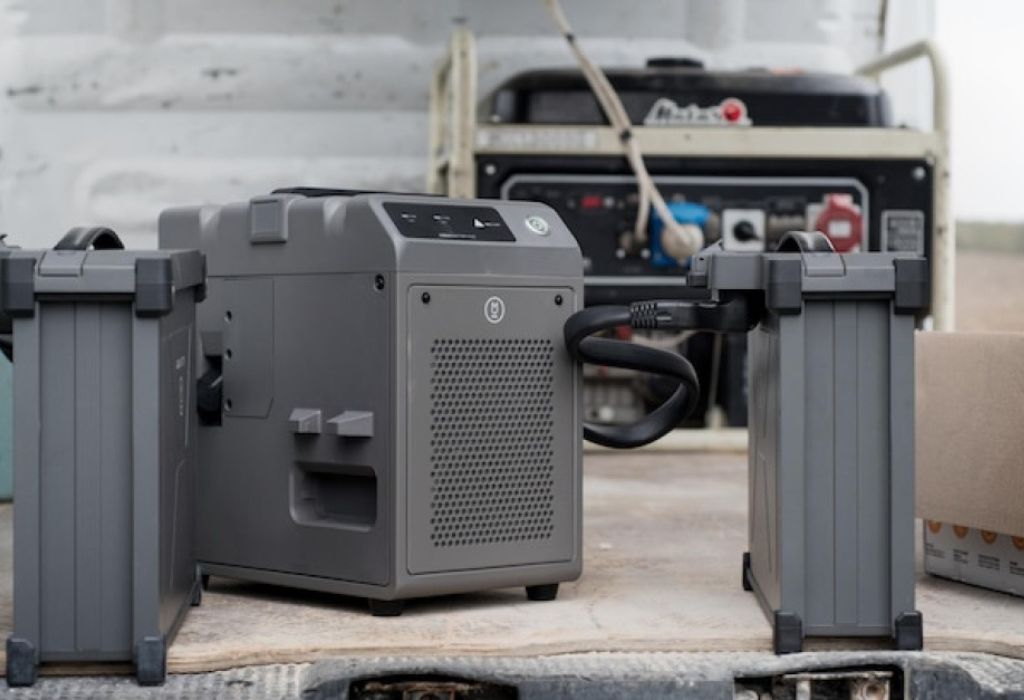
Generators remain the most practical solution for running RV air conditioners continuously. They provide steady power without draining batteries.
Shore power at campgrounds is another reliable option. Plugging into a pedestal ensures uninterrupted air conditioning.
Portable AC units and 12V fans are alternatives for energy efficiency. They use far less power and can supplement cooling.
Hybrid setups that combine solar, batteries, and generators provide flexibility. This allows limited battery use while relying on generators for extended cooling.
Is a generator better than batteries?
Yes, for continuous cooling.
Can shore power run AC all day?
Yes, without limitations.
Do portable ACs use less power?
Yes, they are more efficient.
Are fans a good alternative?
Yes, for reducing AC dependence.
Is hybrid power the best option?
Yes, it balances flexibility and cost.
Tips for Reducing RV AC Power Needs
Insulating the RV with reflective window covers and thermal curtains reduces heat gain. This lowers the demand on the AC.
Using fans to circulate air keeps the RV cooler with less reliance on air conditioning. Ceiling fans or 12V portable fans are effective.
Maintaining the air conditioner ensures maximum efficiency. Clean filters, coils, and vents reduce strain and power draw.
Smart thermostats help by cycling the AC only when needed. This avoids continuous high power usage and extends battery runtime.
How to reduce AC power use?
Improve insulation and shading.
Do window shades help?
Yes, they reduce heat load.
Does AC maintenance matter?
Yes, it ensures efficiency.
Are fans useful with AC?
Yes, they reduce run time.
Do smart thermostats help?
Yes, they cycle the AC efficiently.
Conclusion
Yes, you can run an RV air conditioner on battery power, but only for short periods unless you invest in large lithium battery banks and high-capacity inverters. The energy demand is simply too great for standard RV setups.
Solar can help support battery power during the day, but it is not sufficient for extended overnight cooling without oversized systems. For most RVers, generators or shore power remain the practical solutions.
That said, combining batteries, solar, and generators offers flexibility for modern off-grid RV living. This hybrid approach balances convenience, cost, and sustainability.
Final advice: use batteries for short bursts of cooling, rely on solar to recharge during the day, and keep a generator or shore power connection available for long-term comfort.
I’m David R. Coleman, the founder, lead writer, and lifelong tool enthusiast behind GarageToolPro.com. With years of experience in automotive repair, woodworking, and home DIY projects, I created this platform to share practical tips, detailed tool reviews, and step-by-step guides that help mechanics, hobbyists, and homeowners get the job done right the first time.

